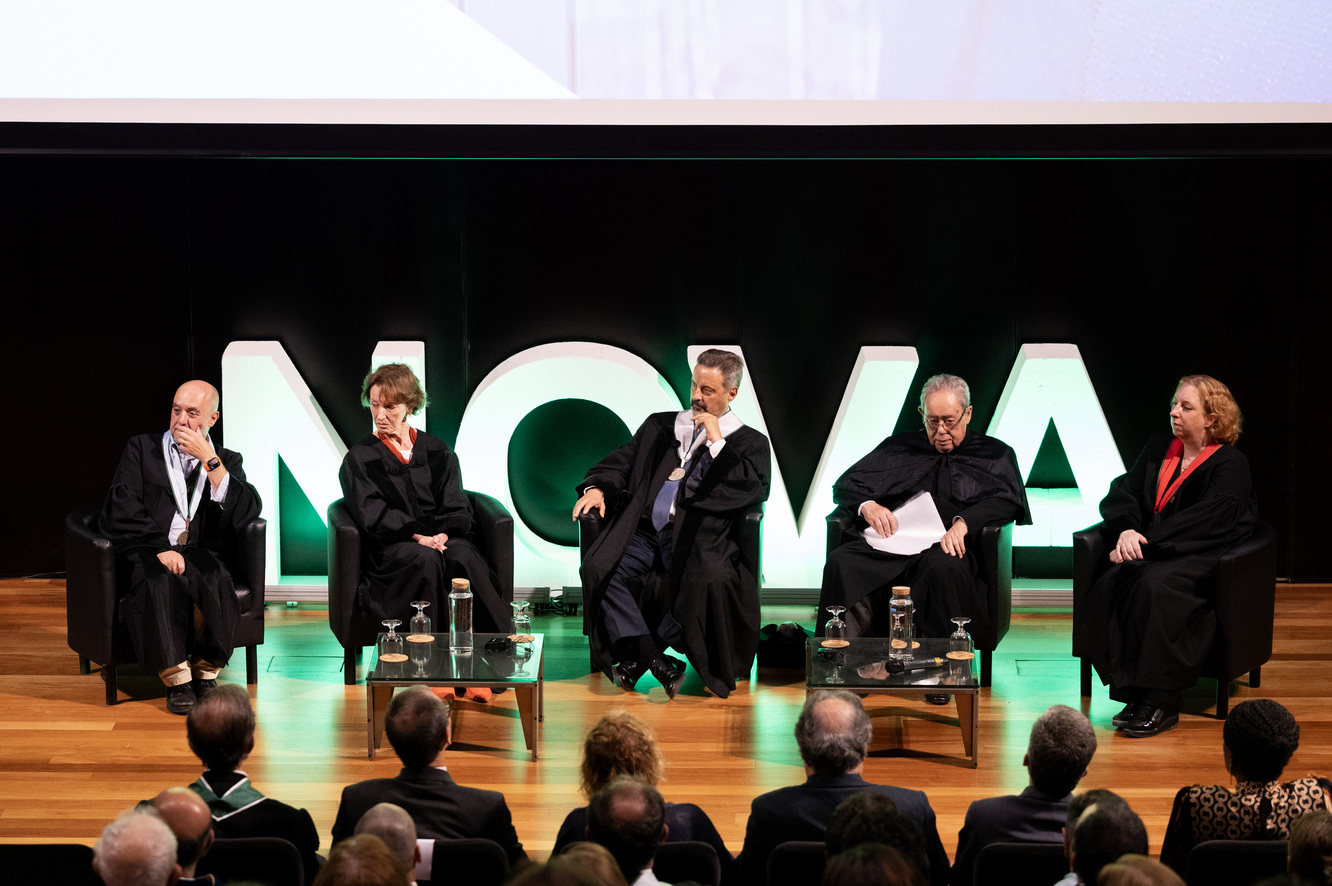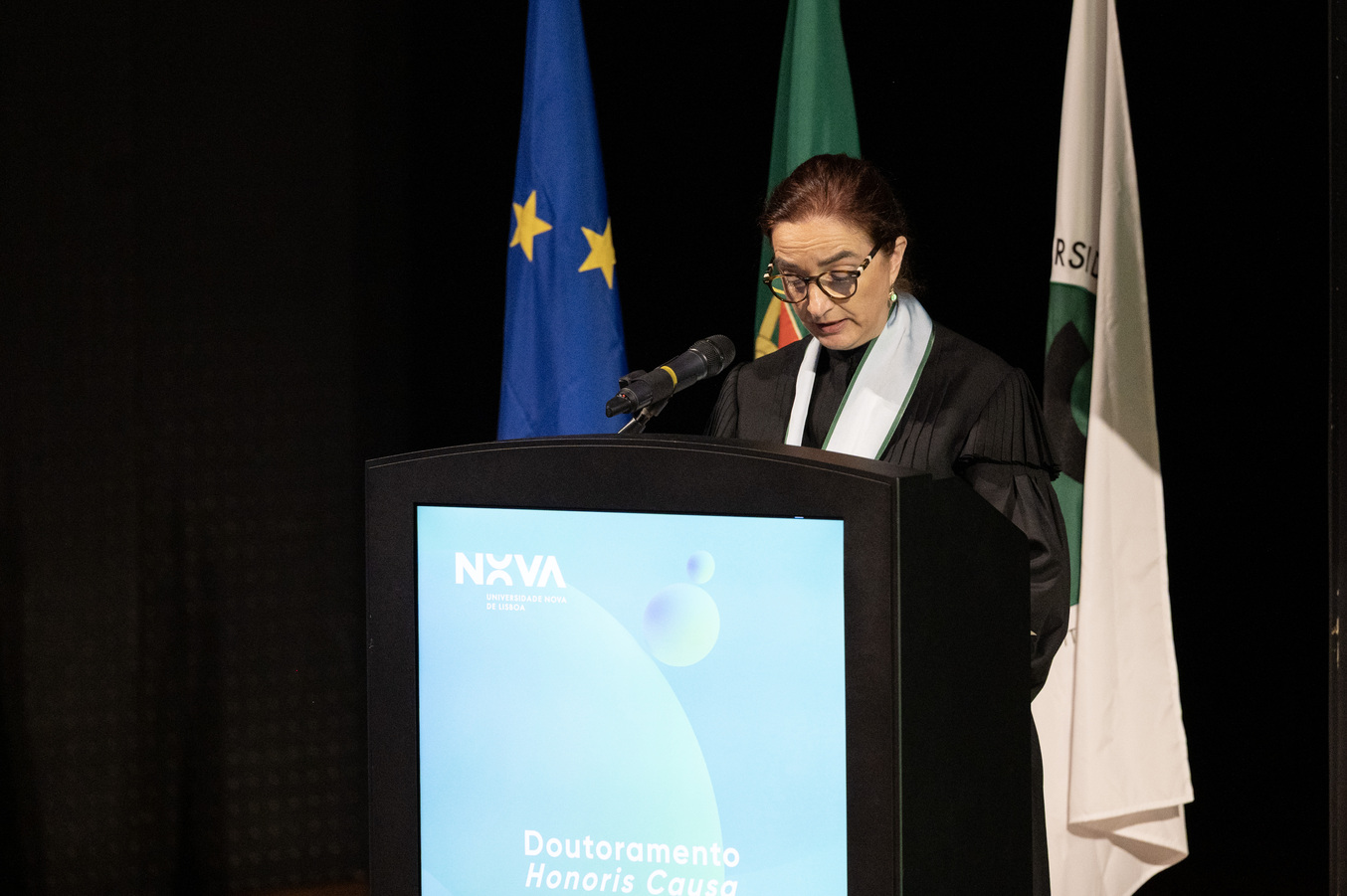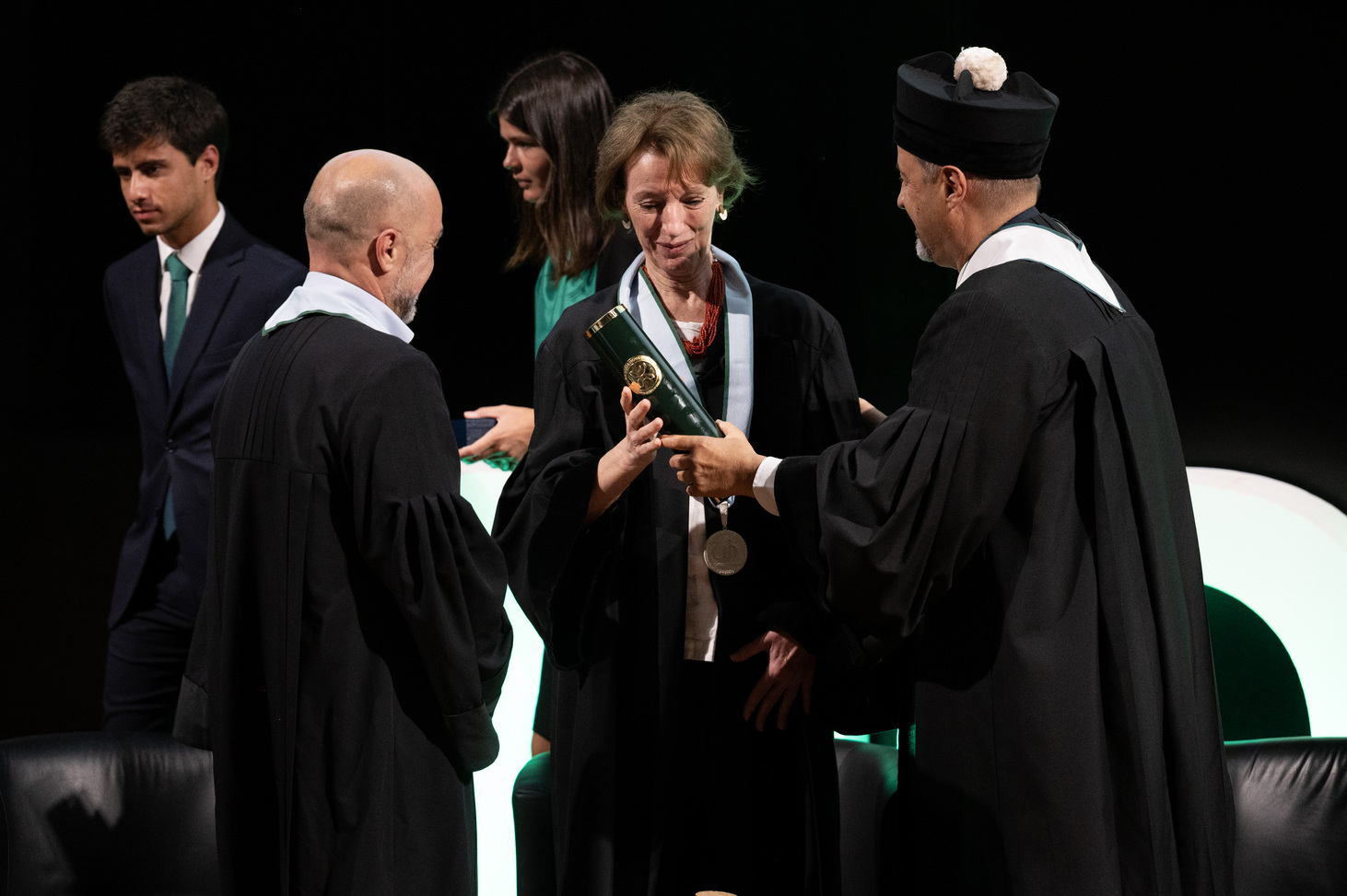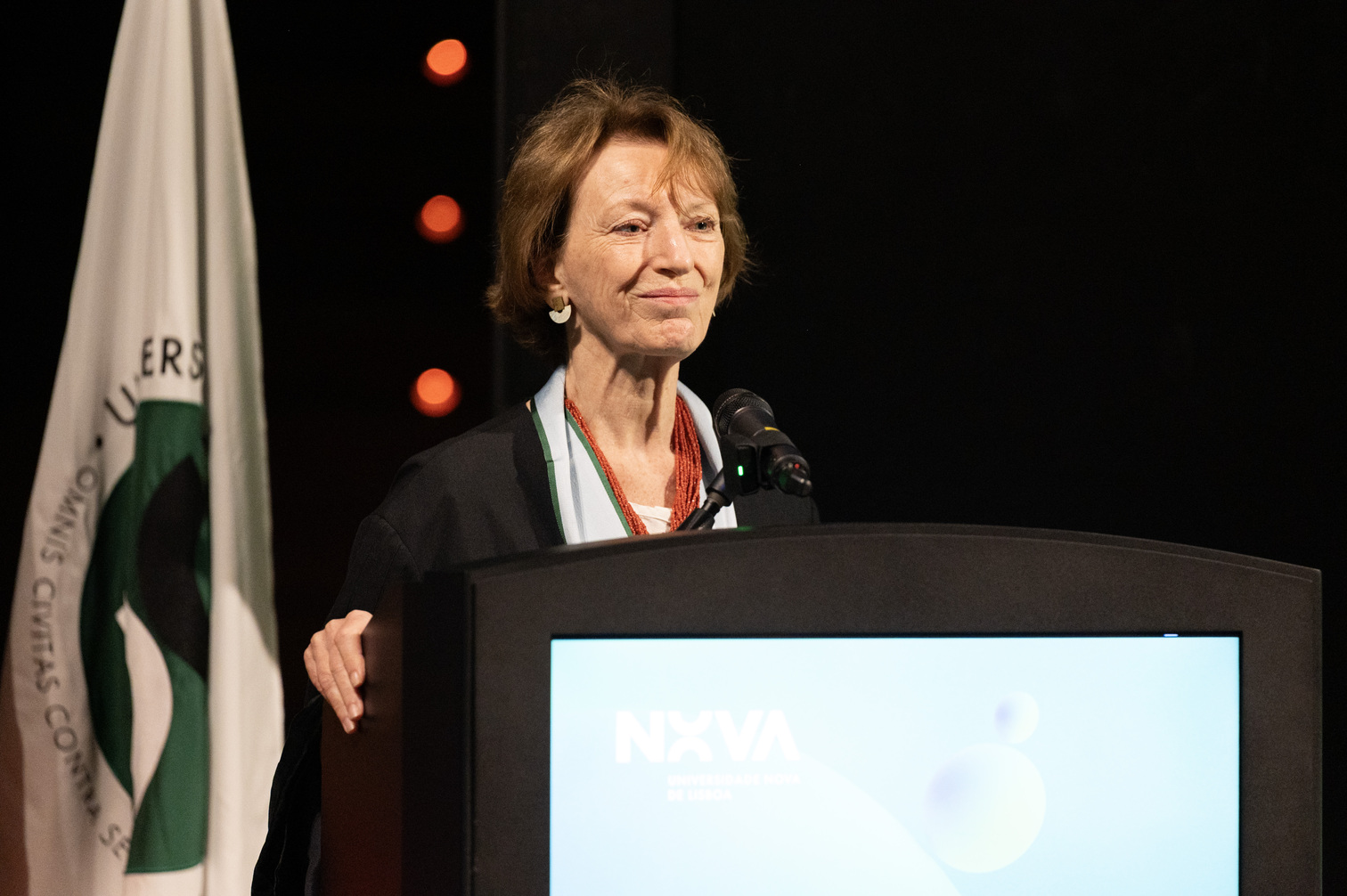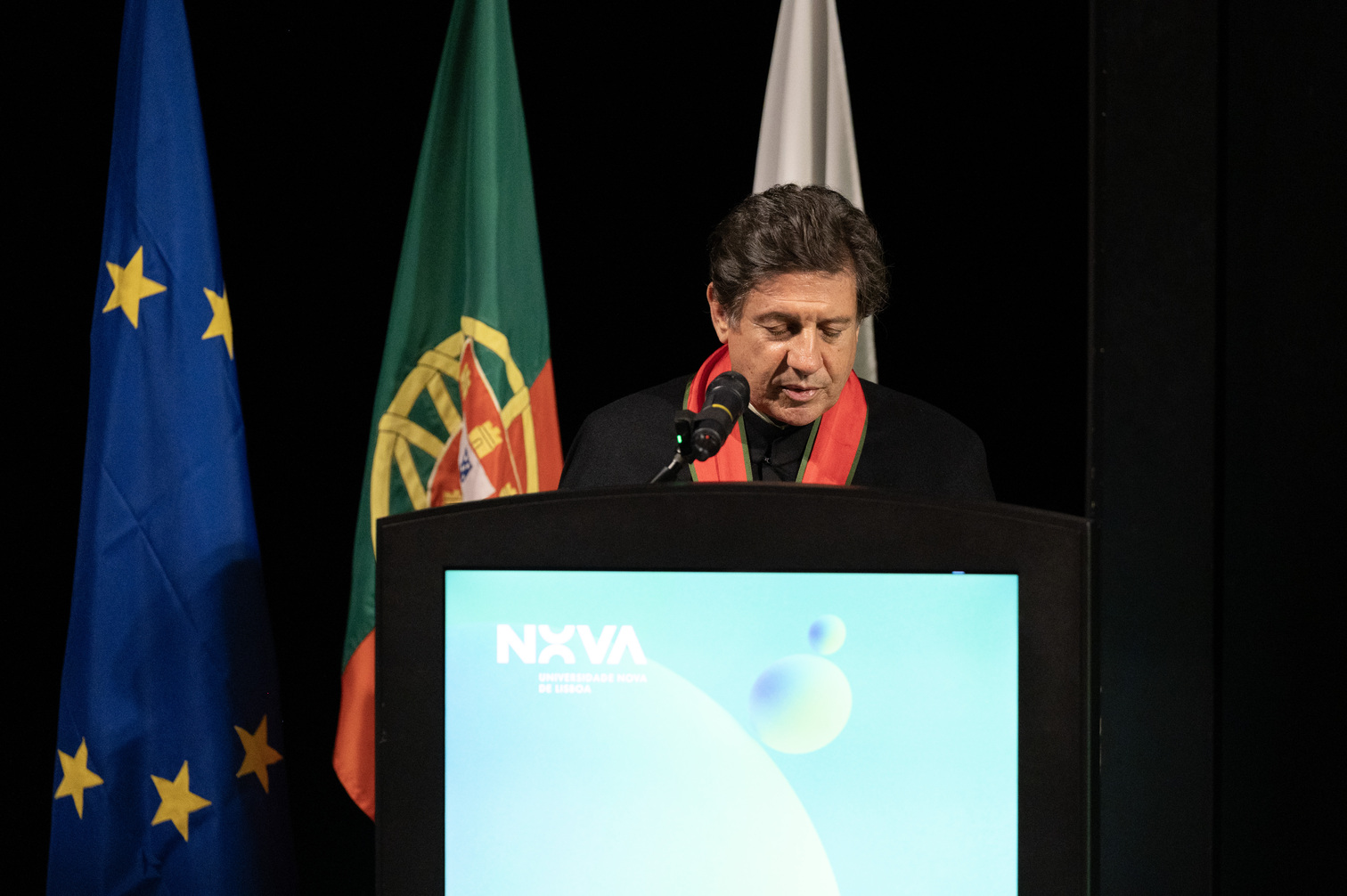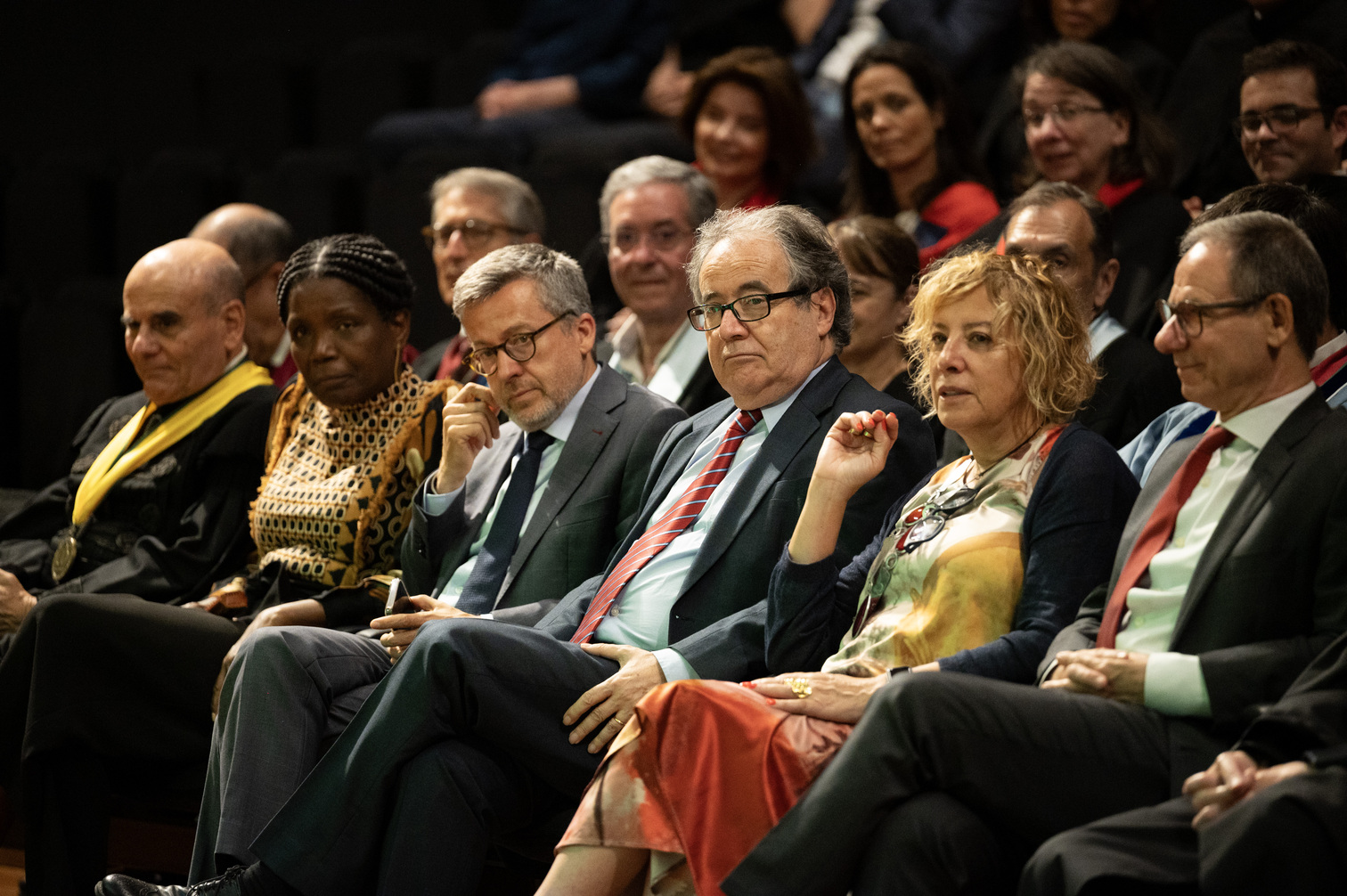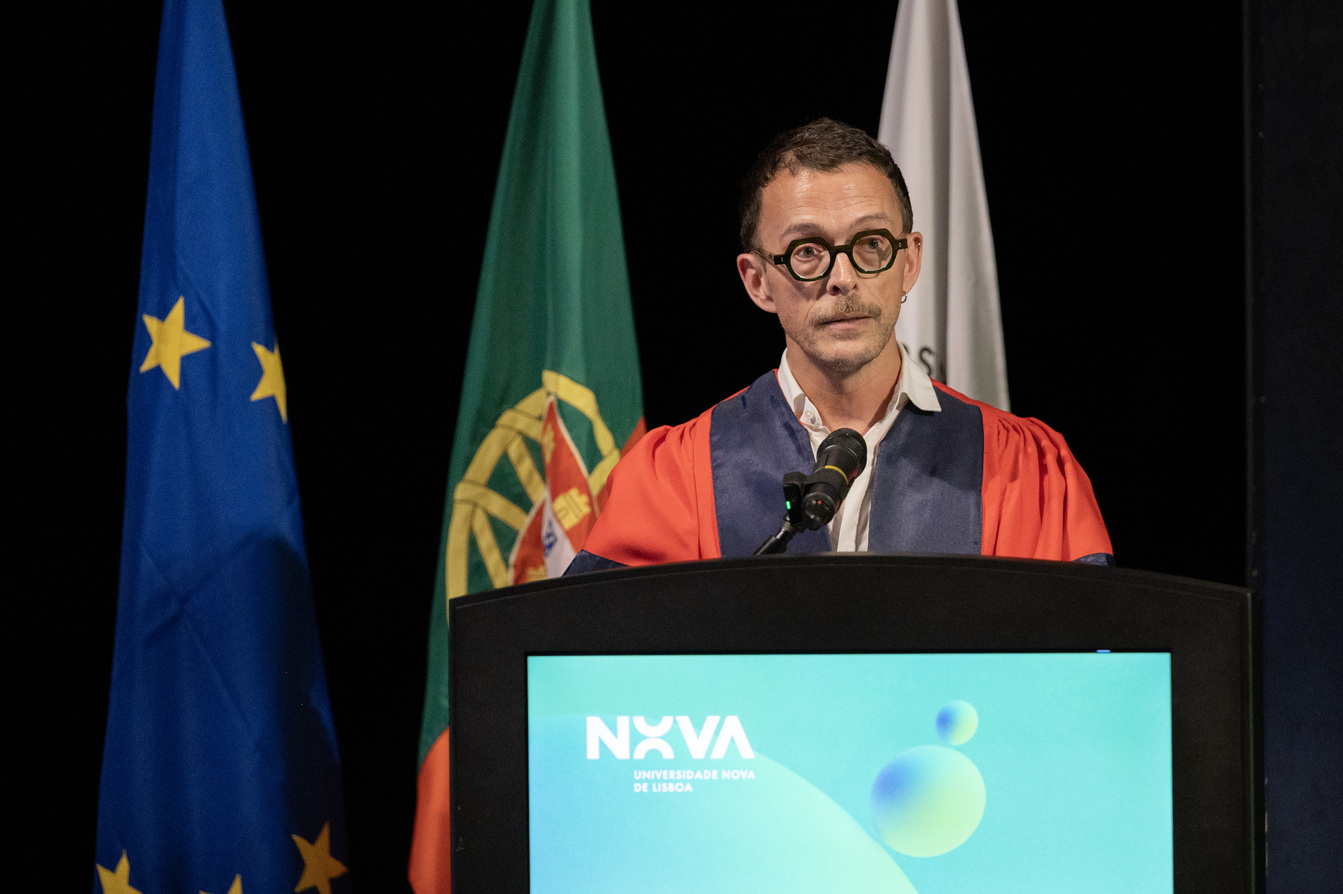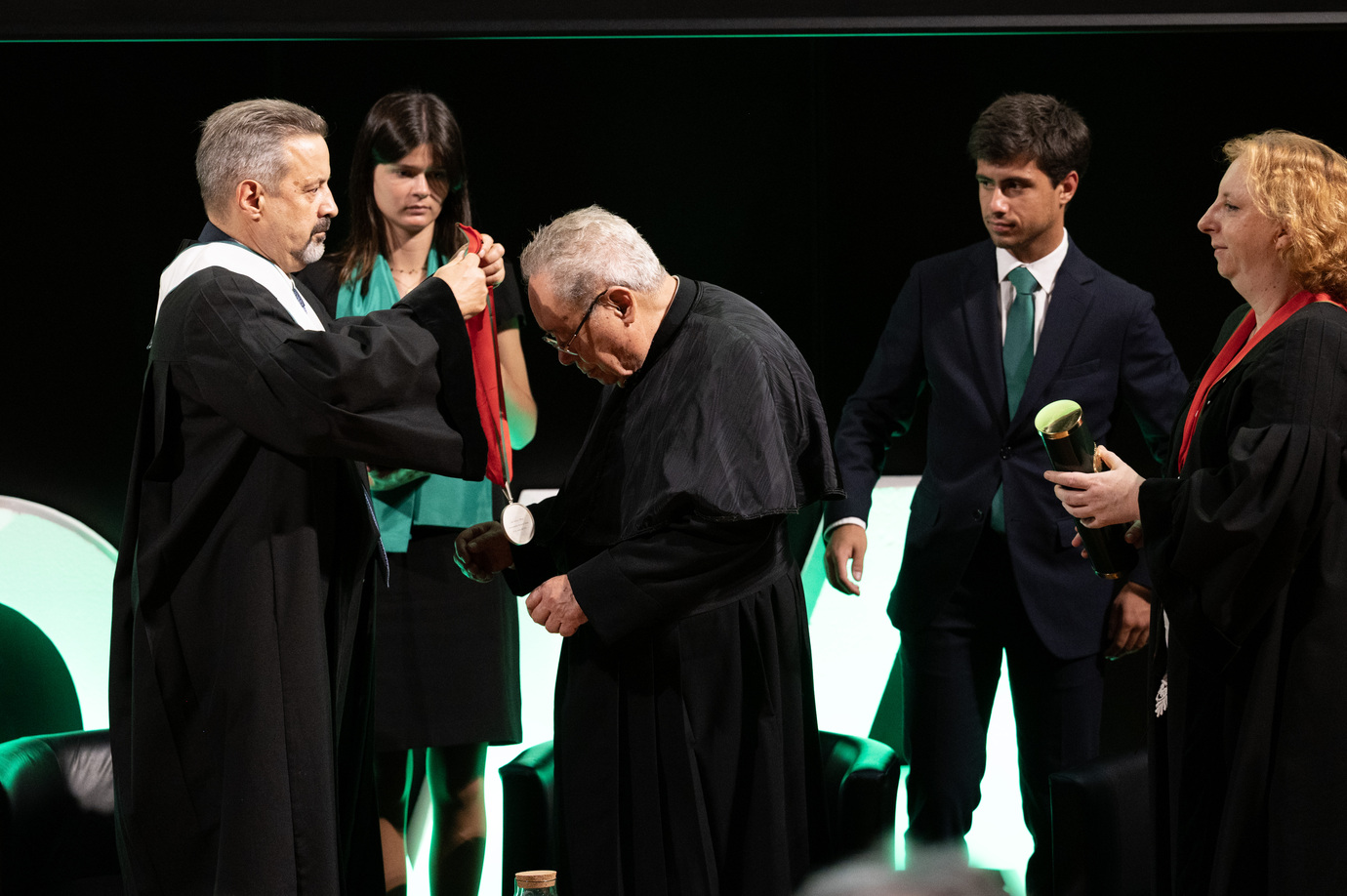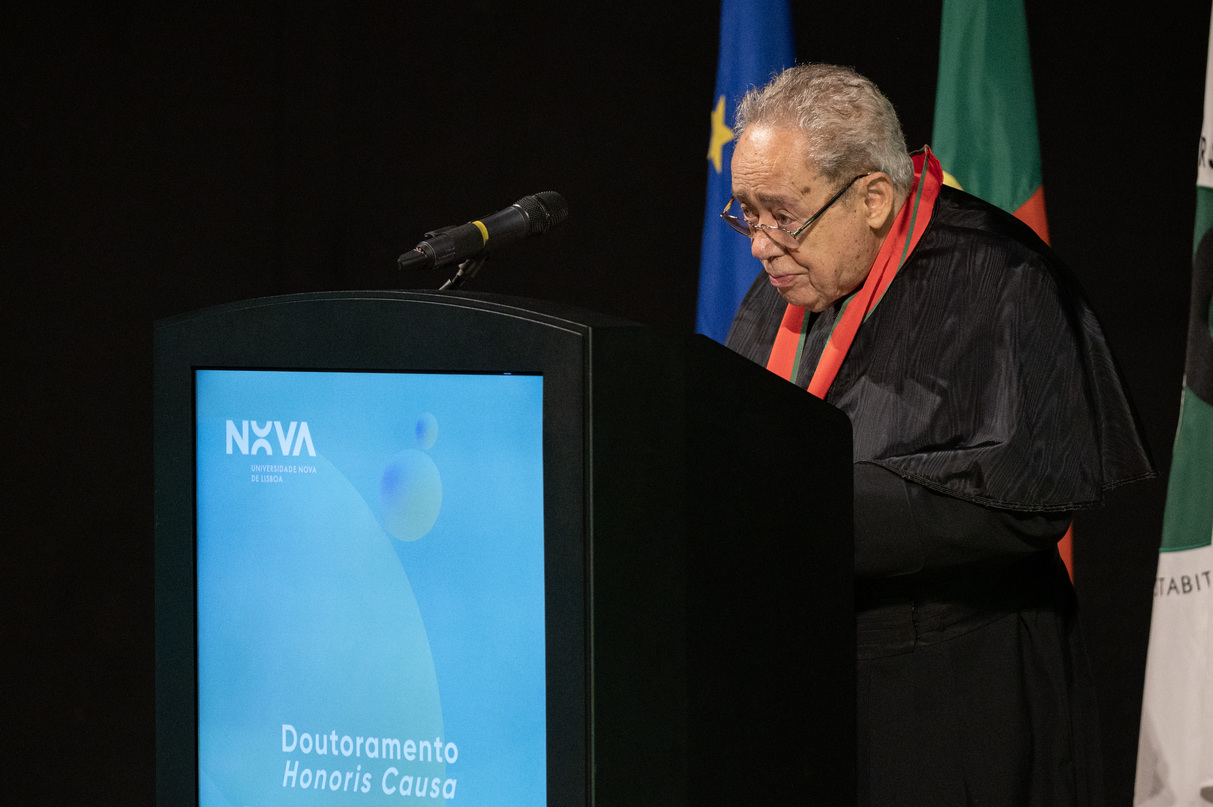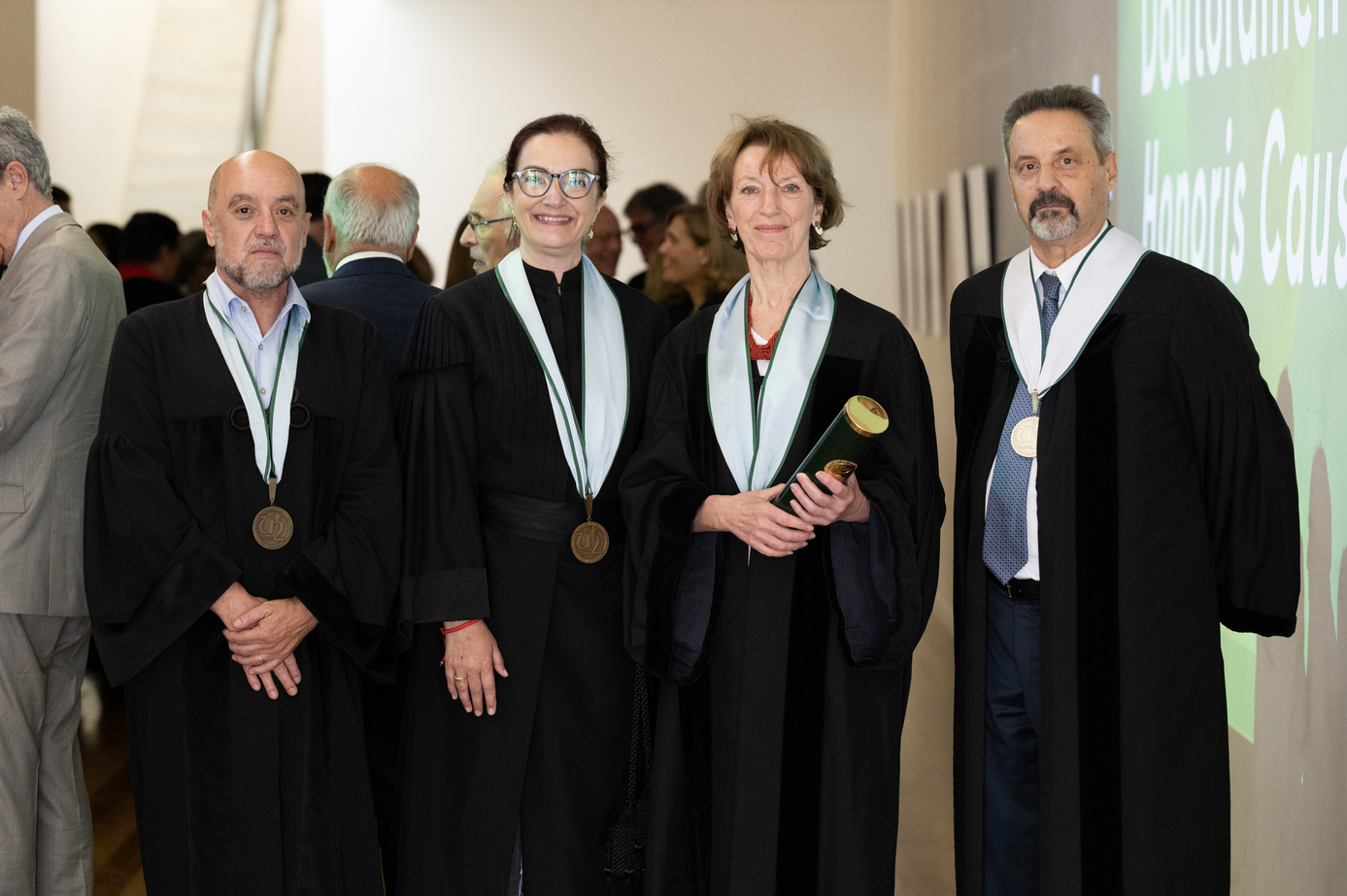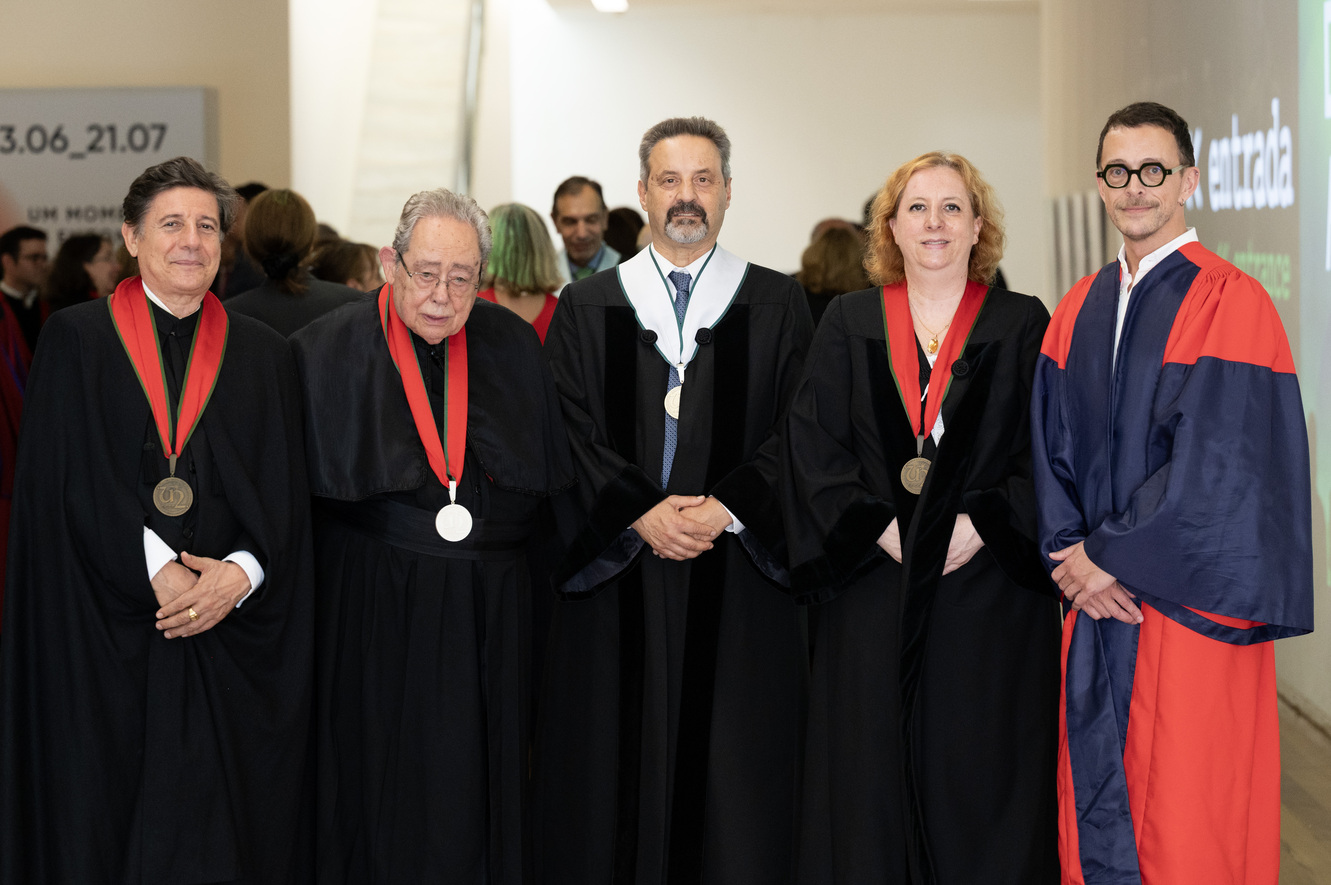This Monday, the 30th, the auditorium of NOVA University Lisbon was filled to celebrate another moment of great academic significance: the conferral of the title of Doctor Honoris Causa to Maria Leptin, President of the European Research Council (ERC), and to José de Sousa e Brito, a prominent figure in the Portuguese legal academia.
“It is an honour to preside over a ceremony that distinguishes a scientist with an exceptional career and exemplary public service,” stated the Rector of NOVA at the opening of the session, highlighting Maria Leptin’s “pioneering work in the life sciences,” which “has helped expand our knowledge” and demonstrated how “fundamental science can illuminate life.” In short, he concluded, “this distinction reflects not only our admiration for her remarkable career but also the deep alignment between her values and those we uphold as an academic community.”
The tributes then turned to José de Sousa e Brito, acknowledged as a scholar whose intellectual legacy has shaped generations. “For nearly half a century, Professor Sousa e Brito has been devoted to teaching, sharing not only knowledge but also a rare ability to inspire critical thinking, ethical reflection, and academic rigour. With a career marked by tireless dedication to the pursuit of justice and legal clarity, his influence transcends the classroom, leaving a lasting mark on institutions and legal frameworks that define our society.”
Before an audience including several prominent public figures – such as Carlos Moedas, Mayor of Lisbon and former European Commissioner; José João Abrantes, President of the Constitutional Court; and former Minister of Justice, Francisca Van Dunem – the laudatory speeches and thanks from the honourees followed.
The first tribute was delivered by Elvira Fortunato, whose laboratory was among those that received the most ERC grants. Recalling the most significant milestones in Maria Leptin’s life and work, she emphasised how the ERC President “continues to champion scientific excellence across Europe and beyond.”
As the first Portuguese recipient of an ERC grant, Elvira Fortunato made a point of highlighting the importance of the 39 grants awarded to NOVA and the impact of the creation of the ERC Portugal Initiative, coordinated by the Foundation for Science and Technology. “These initiatives do more than expand the frontiers of science; they actively contribute to shaping our collective future, fostering prosperity and societal well-being.”
Maria Leptin thanked and reciprocated the praise: “The largest share of European research funding went to NOVA – clearly the best and most successful Portuguese university.” She also emphasised the importance of fundamental science: “Many do not understand why so much is invested in basic science. But it is that knowledge that enables us to tackle today’s major challenges.” She concluded with revealing data: “44% of ERC projects generated knowledge cited in patents; 400 new companies were born from discoveries funded by these grants.”
The tribute to José de Sousa e Brito followed. The first words came from Teresa Pizarro Beleza, read by Frederico da Costa Pinto: “His greatest virtue is persistence,” expressing her gratitude for the honouree’s personal generosity, especially in giving access to his library. “I know he was with me as he was with so many others.”
Luís Duarte d’Almeida, author of the second laudatory speech, reinforced this recognition, interspersing his remarks with poetic excerpts. Quoting The Philosophy of Literary Form by Kenneth Burke, he evoked the “metaphor of the unending conversation” as the ideal of academic dialogue, especially in the humanities and in analytical philosophy, the field in which Sousa e Brito always stood out. “The first time I read that metaphor, the image that came to mind was the library – the famous library – of José de Sousa e Brito.”
He underlined the honouree’s role in shaping, over many decades, an intellectual community across several fields: “Entering a library for the first time is already entering an unending conversation, and countless are the people who only truly began to engage in such a conversation in the library of José de Sousa e Brito.”
In the end, the honouree himself expressed his gratitude in a heartfelt manner: “I will forever be indebted to NOVA for having allowed me to teach Philosophy of Law, my favourite subject.” Throughout his speech, he stressed that “it is impossible to treat legal matters properly without considering philosophical questions.”
As expected, the ceremony ended with poetry: “As Pessoa says, everything is worthwhile…”

